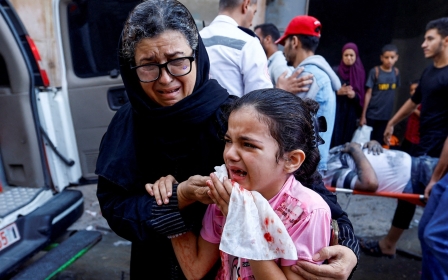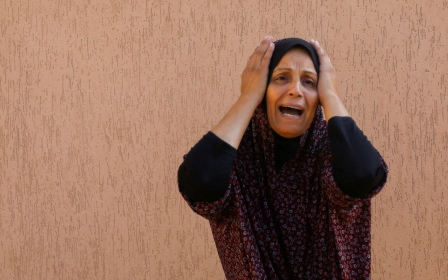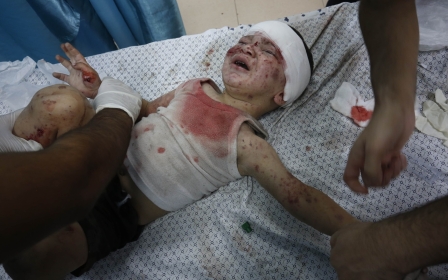Israel-Palestine war: Palestinian students targeted by campaign in Israeli universities
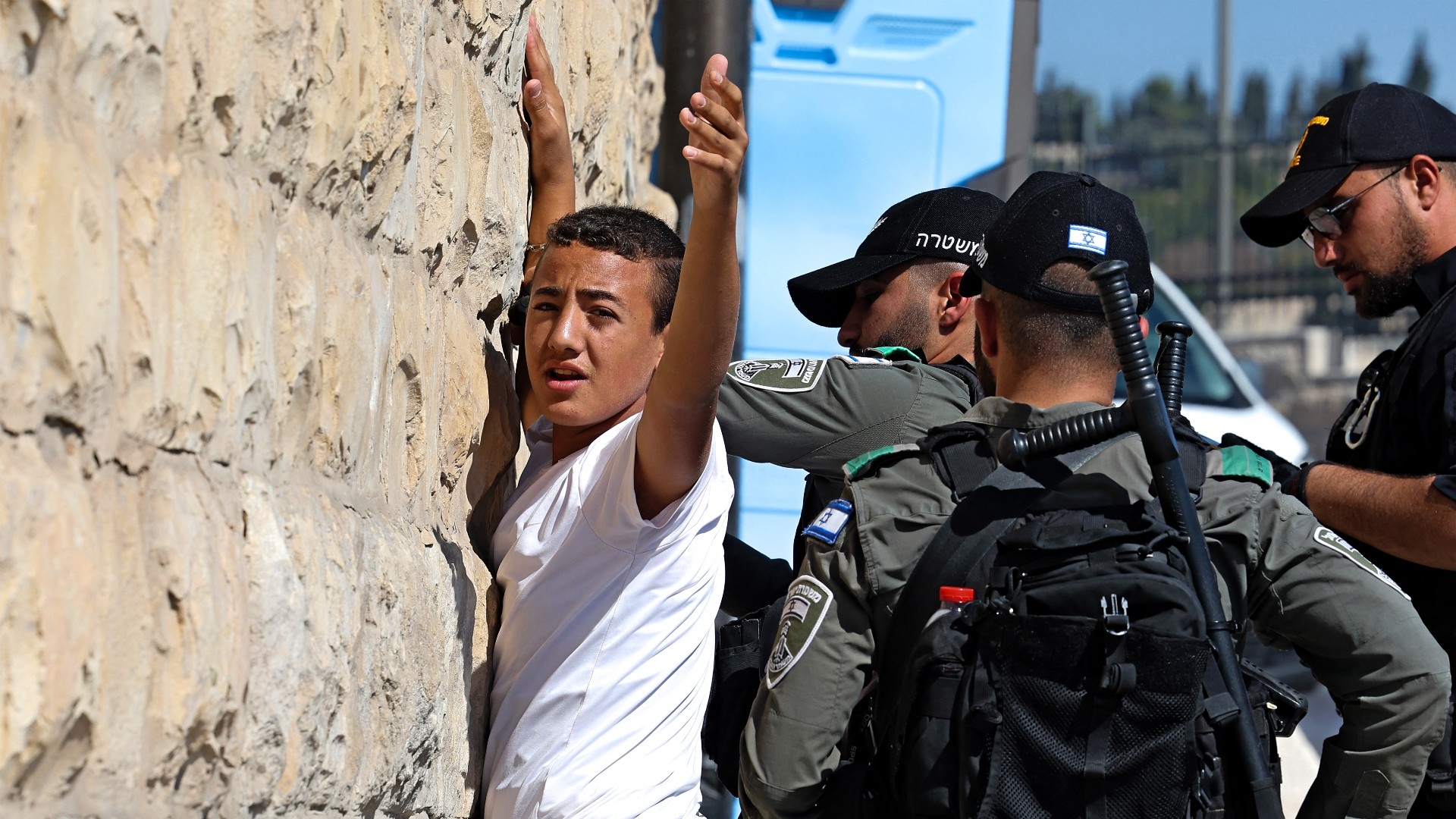
Since the moment the Israel-Palestine war erupted last weekend, Israeli society has been turned upside down.
The shock Palestinian attack on Israeli communities near Gaza, which killed around 1,300 Israelis, has prompted a complete breakdown of previous social bonds between Jewish Israelis and their Palestinian fellow citizens.
A prominent example of this is in the corridors of academia, where previous ties between Jewish and Arab students have unraveled as Israeli fury is directed at Palestinians.
One Palestinian student at the Hebrew University in Jerusalem, who did not want to be named for security reasons, told Middle East Eye that his fellow students have "suddenly turned into spies".
The student said any posts or opinions on the war uploaded to social media had screenshots taken by anti-Palestinian students to use against them. "They turned into Big Brother," the student said.
New MEE newsletter: Jerusalem Dispatch
Sign up to get the latest insights and analysis on Israel-Palestine, alongside Turkey Unpacked and other MEE newsletters
Dozens of students at universities across the country have been sent official emails from their dean suspending their studies on the grounds of "supporting terrorism" or "incitement to terrorism", based on their social media activity.
Lack of verification
This, students say, has been done without even verifying the information or content in the posts. Some were simply images of babies killed in Gaza by Israeli bombing, shared alongside the ironic caption: "Israel's bank of targets".
Heavy Israeli bombardment of the Gaza Strip has killed more than 2,200 Palestinians since 7 October, the majority women and children. Of those killed, 724 are children and 458 are women.
These social media posts only come to the authorities' attention when students highlight and castigate them online. A page run by the Israeli student union calls on all students to report such content via a link posted in the union's social media platforms.
Public figures have even called for students who express sympathies with Gaza's Palestinians to have their citizenship withdrawn.
Follow Middle East Eye's live coverage for the latest on the Israel-Palestine war
Professors, both Palestinians and Jews, who have in turn defended freedom of expression have been treated similarly.
Students say there's more at risk than reputations and university places. The public shaming on social media has the potential to incite violence, too.
Watan Madi, a political science and linguistics student at Ben Gurion University in Beersheba, told MEE he feels at "serious risk".
One of the posts highlighted by fellow students was about last year's commemoration at her university of the 1948 Nakba. Another was just a photograph of preparations for a local council election in her home village.
"They don't have any posts from the current war and still they posted them on the university's student union page," she told MEE.
"I sent a message to the rector of the university. They evaded responsibility by claiming that they do not manage the Facebook page. When the incitement escalated, I contacted them again, and then they got the university security involved. They told me to file a police complaint."
Students suspended
At Jerusalem's Bezalel Academy of Art and Design, at least nine students, around 20 percent of the college's Palestinians, have been suspended without any investigation or prior notice to the representative of Palestinian students.
On Friday night, one student was arrested. Most affected students are wary of making their names and cases public until discussions with the university are over, in case it makes matters worse.
Some students even say they have been threatened with public shaming because of their sexual orientation.
Anti-Palestinian students are also targeting people who recently graduated.
Hasan Kurd is a former student at Bezalel Academy. In the first days of the war, he put a few posts on Instagram.
"They were posts and stories in which I expressed my opinion. They did not include any phrases calling for the killing of any human being, or supporting any political orientation, or celebrating the killing of any human being regardless of race or religion," he told MEE.
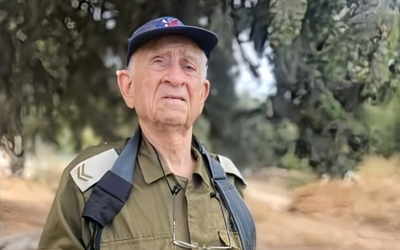
"I am independent and do not belong to any political party and do not support any political party."
Yet he was surprised to find a group of current students at the academy had begun inciting against him online in student groups and on academy platforms.
He received several messages threatening to kill him and his family, with people saying they wanted to send him to Gaza.
"I remained silent and did not respond to anyone," he said.
"Also, the management of the fashion and jewellery department cancelled all publications related to my work, exhibitions and achievements that I had made during the previous five years without giving me any warning."
Kurd even found that the president of the academy had viewed his Instagram stories, "which forced me to shut up and stop posting anything else and convert my account to a private account".
"I am in a state of panic and fear due to this behaviour."
A student at Haifa University in northern Israel, who wished to remain anonymous, said they accidentally forwarded a video from the war to a WhatsApp group, thinking it was a file about course registration.
"The next morning, I received a suspension letter from the university rector accusing me of supporting terror, without any investigation."
Although the suspended students have had little chance to argue their case to university authorities, Adalah, a legal NGO promoting Palestinian rights, is following up on the issue.
Middle East Eye delivers independent and unrivalled coverage and analysis of the Middle East, North Africa and beyond. To learn more about republishing this content and the associated fees, please fill out this form. More about MEE can be found here.


